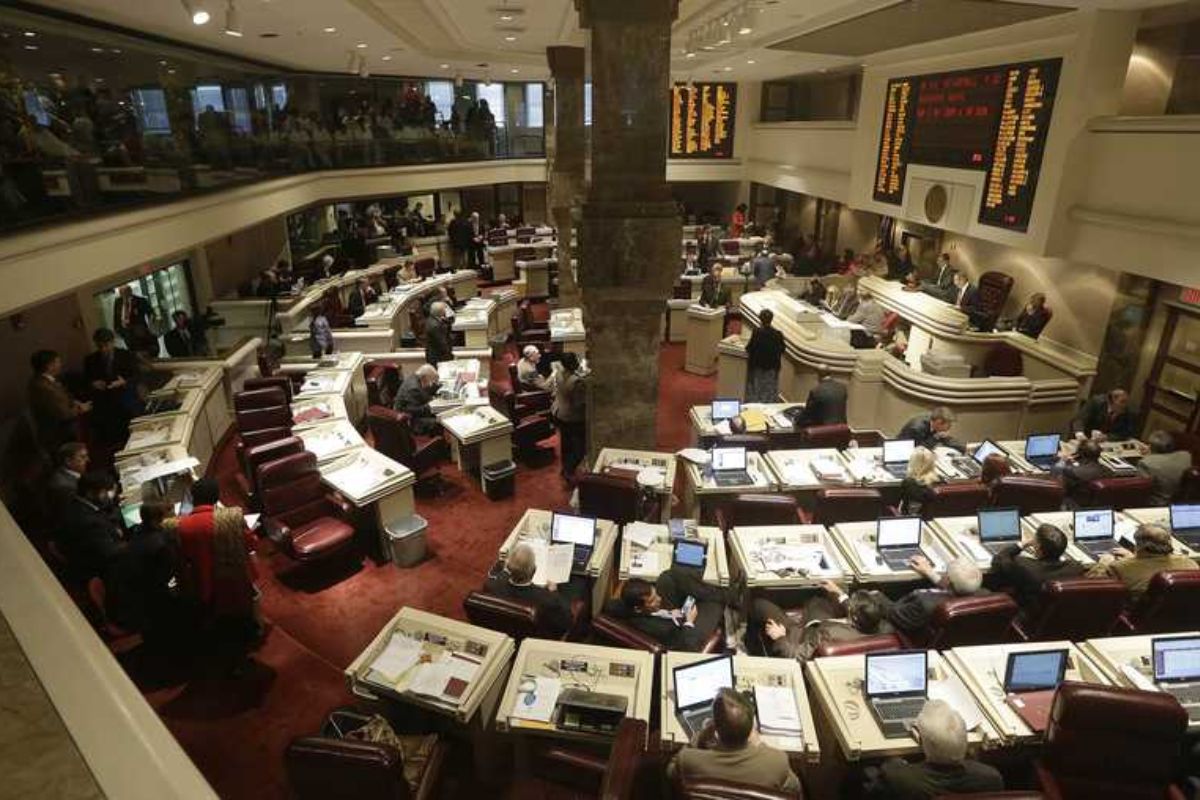Alabama House Debates Bill for Online Sales Tax: Montgomery, Ala. The ongoing debates within the Alabama House surrounding the proposed bill for an online sales tax hike have stirred considerable contention among lawmakers and residents alike.
Advocates underline the importance of tax equity, increased revenue for education, and promoting a level commercial playing field. Yet, opposition voices stress potential repercussions on residents and urge a focus on other pressing legislative matters. The intricate web of perspectives and concerns interwoven in this discourse underscores the significance of a nuanced approach and the necessity for thorough examination before reaching a resolution.
Alabama Bill Proposes Online Sales Tax Increase
The proposed Alabama bill seeks to increase the online sales tax rate from eight percent to just over nine percent, as it advances to the State House floor for further consideration. HB 258, if passed, would impact online purchases made by Alabama residents. This adjustment aims to align the taxation of online sales more closely with that of traditional brick-and-mortar transactions, potentially generating additional revenue for the state.
The current eight percent tax rate on internet sales has been a subject of debate, with proponents of the bill arguing that it is necessary to adapt to the changing retail landscape and guarantee fairness across different types of businesses. By raising the online sales tax rate, the state could capture a greater share of revenue from e-commerce activities, which have seen significant growth in recent years.
The proposed increase reflects efforts to modernize Alabama’s tax structure and adapt to the evolving digital economy. If implemented, this adjustment could have implications for both consumers and online retailers operating in the state.
Supporters Cite Fairness and Funding for Education
Supporters of the proposed Alabama bill advocating for an increase in the online sales tax rate emphasize the importance of fairness in taxation and the potential to secure additional funding for education initiatives. They argue that by imposing a higher tax on online purchases, it helps to level the playing field between online retailers and local brick-and-mortar stores.
The additional revenue generated from this tax hike is planned to be allocated towards schools, counties, and municipalities, aiming to bolster educational resources and support local communities. In conjunction with this measure, there is also a parallel proposal for a tax-free holiday focusing on sporting goods, which further showcases the nuanced approach towards taxation and revenue distribution in the state.
Advocates believe that these initiatives not only address the issue of fairness in taxation but also provide a means to enhance educational funding, potentially benefiting students and communities across Alabama.
Divided Opinions Among Lawmakers and Residents
Amidst the ongoing debates in the Alabama House regarding the proposed online sales tax hike, divergent perspectives among lawmakers and residents reveal a notable division in opinions on the matter. Representative Debbie Wood from Valley, a dissenting voice, points out the state’s already high sales tax revenue, suggesting that imposing additional taxes on residents would not be prudent at this time.
On the other hand, residents like Tish MacInnis from Elmore County see the potential tax increase as a way to support children in the state. MacInnis believes that any initiative that can enhance communities and contribute to child welfare should be welcomed.
This contrast in viewpoints underscores the complexity of the issue at hand and the various considerations that lawmakers and residents must weigh when deliberating on the proposed online sales tax hike. The differing opinions highlight the need for thorough discussion and careful consideration of the potential impacts on both the state’s revenue and its citizens.
Calls for Prioritization and Consideration
Prioritization and thoughtful consideration of legislative agendas are imperative in addressing the complexities surrounding the proposed online sales tax hike in Alabama House debates. Rep. Jamie Kiel (R-Russellville) has underscored the need to focus on other pressing legislative priorities, such as the Education Budget and addressing existing tax cut requests, before introducing new taxes. This call for prioritization highlights the balancing act that lawmakers must perform in weighing the potential benefits of the online sales tax increase against other critical needs within the state.
While certain counties currently allocate sales tax revenue to support local schools, the upcoming debates in the House will center on the proposed online sales tax hike and a bill introducing a tax-free holiday for sporting goods. These deliberations will require thorough examination and strategic decision-making to make sure that the interests of various stakeholders, including taxpayers, businesses, and educational institutions, are taken into account. As the discussions unfold, legislators face the challenge of managing divergent opinions and interests to arrive at a well-informed and equitable decision regarding the online sales tax hike.
News in Brief
The Alabama House debates over the proposed online sales tax hike reflect the complexity of the issue and the diverse perspectives involved.
The discussions emphasize the need for careful consideration and prioritization of legislative matters, particularly regarding education funding and existing tax cut requests.
The differing opinions among lawmakers and residents highlight the importance of thoroughly examining the potential impact of the tax increase before reaching a decision.
ALSO READ: Alabama Forecasts Gas Price Increases

